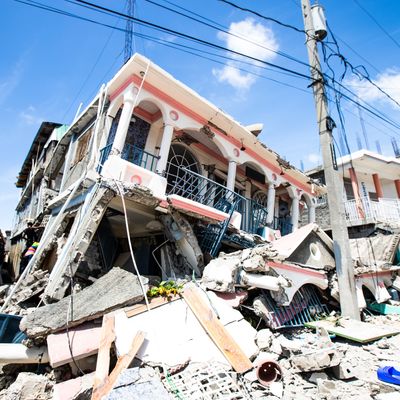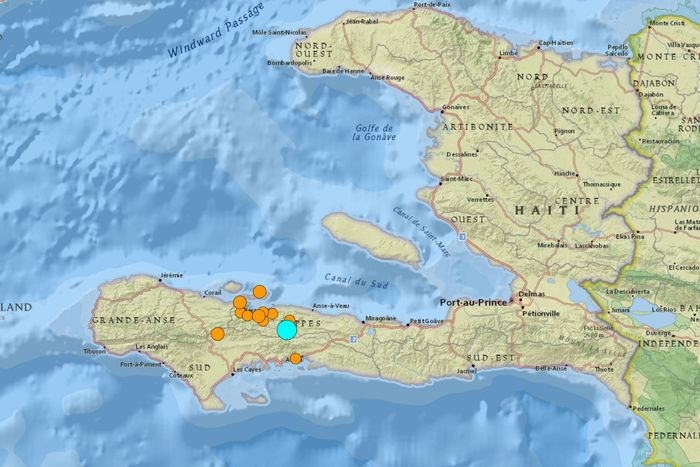
Haitian government officials have confirmed that at least 1,941 people have died after a 7.2-magnitude earthquake struck Haiti on Saturday morning, collapsing buildings and causing heavy damage in the western region of the country’s southern peninsula. At least 9,900 more have been injured, as rescue efforts continue and a state of emergency has been declared in four of Haiti’s 10 departments, the nation’s administrative districts.
The quake epicenter was near the town of Petit-Trou-de-Nippes, along the same fault line as the devastating 2010 7.0-magnitude quake that killed somewhere between 220,000 and 300,000 people, and from which the country still hasn’t finished recovering. The 2010 quake leveled much of the country’s heavily populated capital, Port-au-Prince, which was about 30 miles east of the epicenter.
Haitian prime minister Ariel Henry said on Saturday that some towns had been almost completely destroyed by the quake, and that hospitals in the port city of Les Cayes had been overwhelmed with injured. The town of Jeremie was also reportedly hard hit.
Saturday’s quake, just under 80 miles west of Port-au-Prince, struck in a less densely populated part of the country, though CNN still estimates that some 2.5 million people likely live within 50 miles of the epicenter (compared with 6.5 million in the same radius of the 2010 epicenter).
Prime Minister Henry declared a monthlong nationwide state of emergency in response to the disaster. U.S. President Joe Biden, in a statement on Saturday, offered his condolences, vowed that the U.S. “will be there in the aftermath of this tragedy,” and named USAID administrator Samantha Power to coordinate the U.S. response. Power then announced that a USAID Disaster Assistance Response Team has been deployed to Haiti, which includes a 65-person search and rescue team.
Numerous aftershocks have been felt in Haiti since the initial quake, registering as high as 5.2 on the Richter scale.
The disaster comes at an especially precarious time for Haiti. On top of the pandemic, the impoverished country of 11 million people is already in a state of political chaos following the assassination of its president last month, and still hasn’t recovered from the 2010 earthquake, which killed 316,000, according to the government count one year after the disaster. The country was also hit by heavy rains after Tropical Storm Grace passed through the region on Monday. UNICEF warns that “flooding and mudslides are likely to worsen the situation of vulnerable families and further complicate the humanitarian response.” Officials warn that some areas could get as many as 15 inches before the storm is through.






























